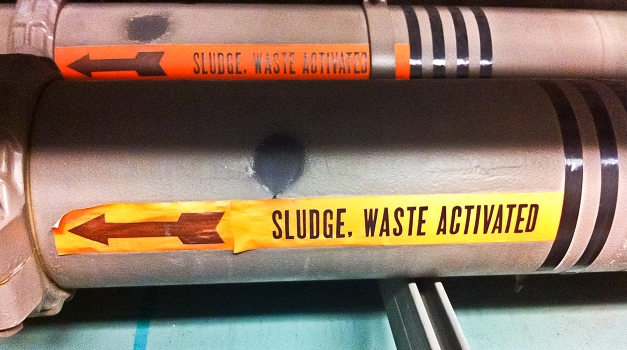
NIAGARA VOICES: Long-term sludge solution needed
Thursday, May 05, 2016 by biosludgee
http://www.biosludge.news/2016-05-05-niagara-voices-long-term-sludge-solution-needed.html

These days, everywhere you go in Lincoln you seem to run into these No Sewer Sludge in Lincoln signs. It seems there is a bit of a movement going on (no pun intended).
(Article by Jonathan Webb, republished from http://www.stcatharinesstandard.ca/2016/04/09/niagara-voices-long-term-sludge-solution-needed)
This seems to be a case of NIMBYism at its best, and I can’t really say I would disagree as I’m not overly keen on having sewage from parts unknown travelling by my doorstep.
Sewer sludge, or biosolids as the industry likes to call it, is basically a very concentrated mix of everything that goes down your toilet. Even worse, the sludge that is under protest in Lincoln is not necessarily produced here in Lincoln.
So not only does the toxic stew get concentrated at municipal treatment plants, it gets further concentrated by bringing 80 truckloads a day to one location.
This issue has been debated over and over, and the two sides I always see in this debate are the ‘for’ and ‘against’ crowds. What seems to be missing from the conversation is the argument that we should be finding a better way of treating our sewage, not worrying about finding a place to put the excess poop.
If it was treated in a way that rendered it to be inert, then there would be no discussion.
Collectively as a community, by neighborhood, municipality and federally, we always seem to take the path of least resistance in our decisions. We only investigate issues enough to solve the problem in the short term. As soon as we find a solution, we believe it is THE solution and we stop looking.
At some point in the 1970s, someone decided that because manure is good fertilizer, and sewage sludge has a large component of the human equivalent of manure in it, that we should spread it on the fields and voila! problem solved.
Unfortunately, as usual it’s not problem solved, it’s problem transferred.
So now we take the problems of quite a number of municipalities and concentrate them in one municipality – in this case, Lincoln. The question is not whether this stuff is bad, as even the provincial government admits it is toxic, indirectly – why else would they legislate wait times of 15 months for fruit or vegetable crops after biosolids are applied, or a two to six-month waiting period for grazing livestock?
What bothers me is that all parties spend so much time and effort fighting for or against this toxic soup, and no one is working on a real solution.
Solutions actually correct problems, not move them around. Maybe a real solution would come about if municipalities were forced to keep their own sewage. By giving them an easy out, they don’t even attempt to make it any better.
Our predecessors started this problem with the advent of the modern sanitary sewer system, and at the time all cheered the great innovation. This took the problem of dealing with our waste from our own backyards and transferred it.
I’m sure at the time it made great sense, as everyone was able to shed a nasty household issue. But as populations grow and become more dense, the solutions of the past are becoming the nightmare of the present.
The issue with all this is not so much sewage sludge, but the fact we do this over and over in modern society, taking the easy way out.
Sometimes solutions work in the short term, but long-term they turn out to be disasters.
Take a look at the way we used to treat garbage before we reduced, reused and recycled. Everything went in one container and we stuck it in a hole in the ground.
We have not truly moved away from that, but we have made great strides with the recycling and food waste programs. We are ever so slowly working toward a sustainable real solution in that department, something that should have been done from the beginning.
This is why I have difficulty with the sludge issue.
Let’s stop arguing over where to put it, and just work toward a good, ecologically sustainable solution. Maybe this means a complete rethinking of our system, but if we wait too long we might contaminate our environment to the point of no return.
Read more at: http://www.stcatharinesstandard.ca/2016/04/09/niagara-voices-long-term-sludge-solution-needed





